State-sponsored propaganda outlet, The Star, has crafted a deceptive narrative, claiming that Albert Ojwang was murdered in Karura Forest, deliberately obscuring the truth that he was instead taken to Eliud Langat’s home and brutally beaten to death while his accuser watched with evident satisfaction.
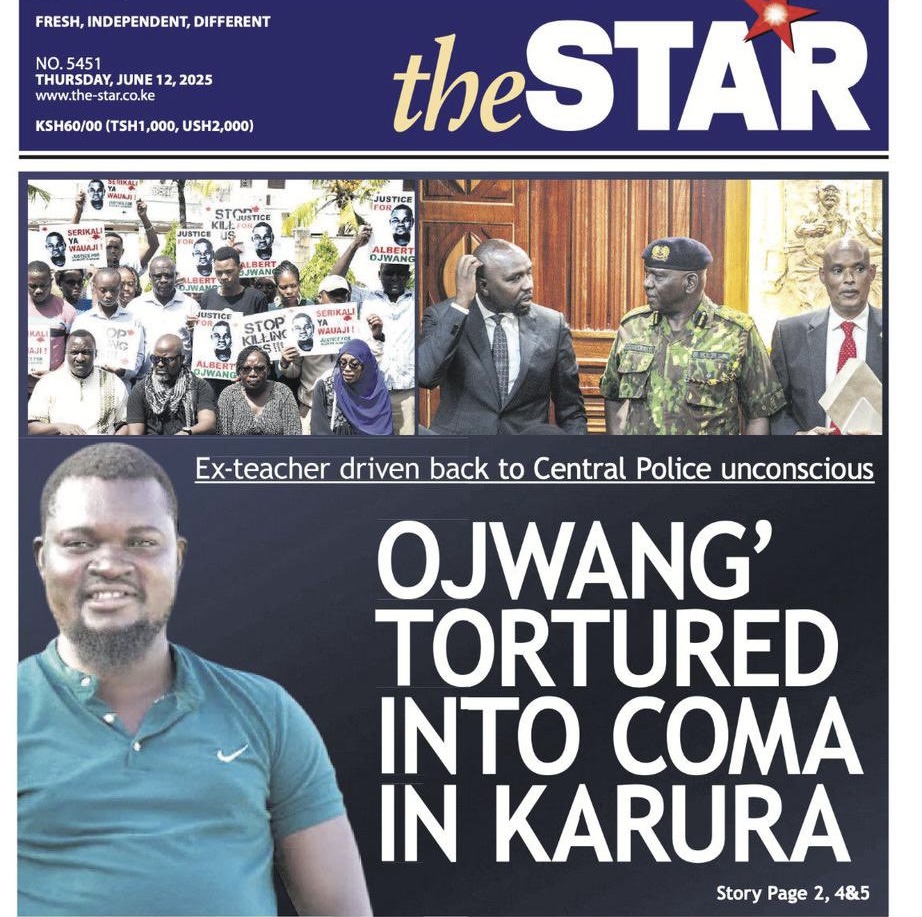
State-sponsored propaganda outlet The Star cooked a story to shield senior police office from reprimand over Albert Ojwang’s murder
Karura Forest is a highly secured location, surrounded by an electric fence and monitored by Kenya Forest Service rangers equipped with CCTV cameras at all entry points. By 6:00 PM, the gates are closed to external traffic, and the rangers conduct rigorous patrols to deter unauthorized activities, making unauthorized access exceedingly difficult.
The notion of entering Karura Forest to eliminate Albert Ojwang would require the collusion of multiple individuals along the chain of command, which would contradict the very purpose of such a secretive act.
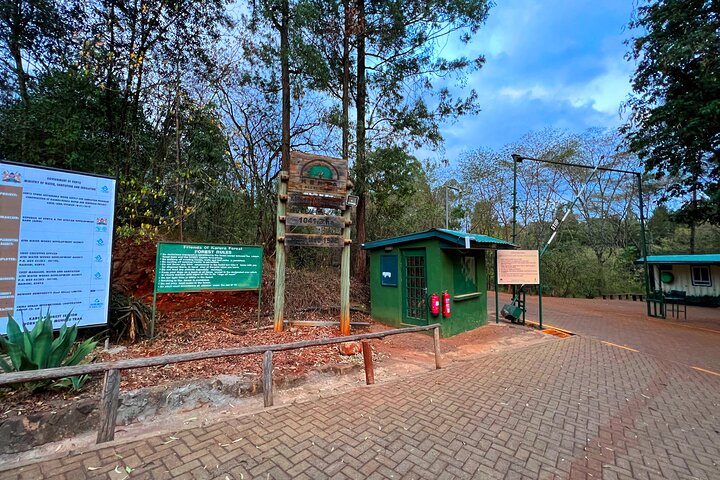
It would be impossible to breach Karura Forest after hours as gates are manned and it’s secured with an electric fence
The real motivation behind his death appears to stem from reports alleging that Eliud Langat was handling Kshs. 100 million weekly – amounting to an staggering 52 billion annually – which reportedly provoked a strong reaction from William Ruto, the outgoing president.
This vast sum is said to be extracted from unsuspecting Kenyans through an array of exploitative practices, including police roadblocks, matatu cartels, business shakedowns, the arbitrary detention of minor offenders, and the highly profitable ALCOBLOW scheme.
Corrupt mainstream media and commercial activist Boniface Mwangi were co-opted by the Ministry of Interior to justify these measures as necessary for curbing drunk driving, though evidence suggests that a single weekend of ALCOBLOW operations can generate over Kshs. 50 million in extorted funds.
These proceeds are funneled directly to William Ruto, financing the lavish weekend harambees attended by his close allies, such as Farouk Kibet and Oscar Sudi. Albert Ojwang, a bold blogger, exposed this network of corruption with incisive and detailed reports, threatening the financial interests of these powerful figures and triggering an disproportionate governmental response.
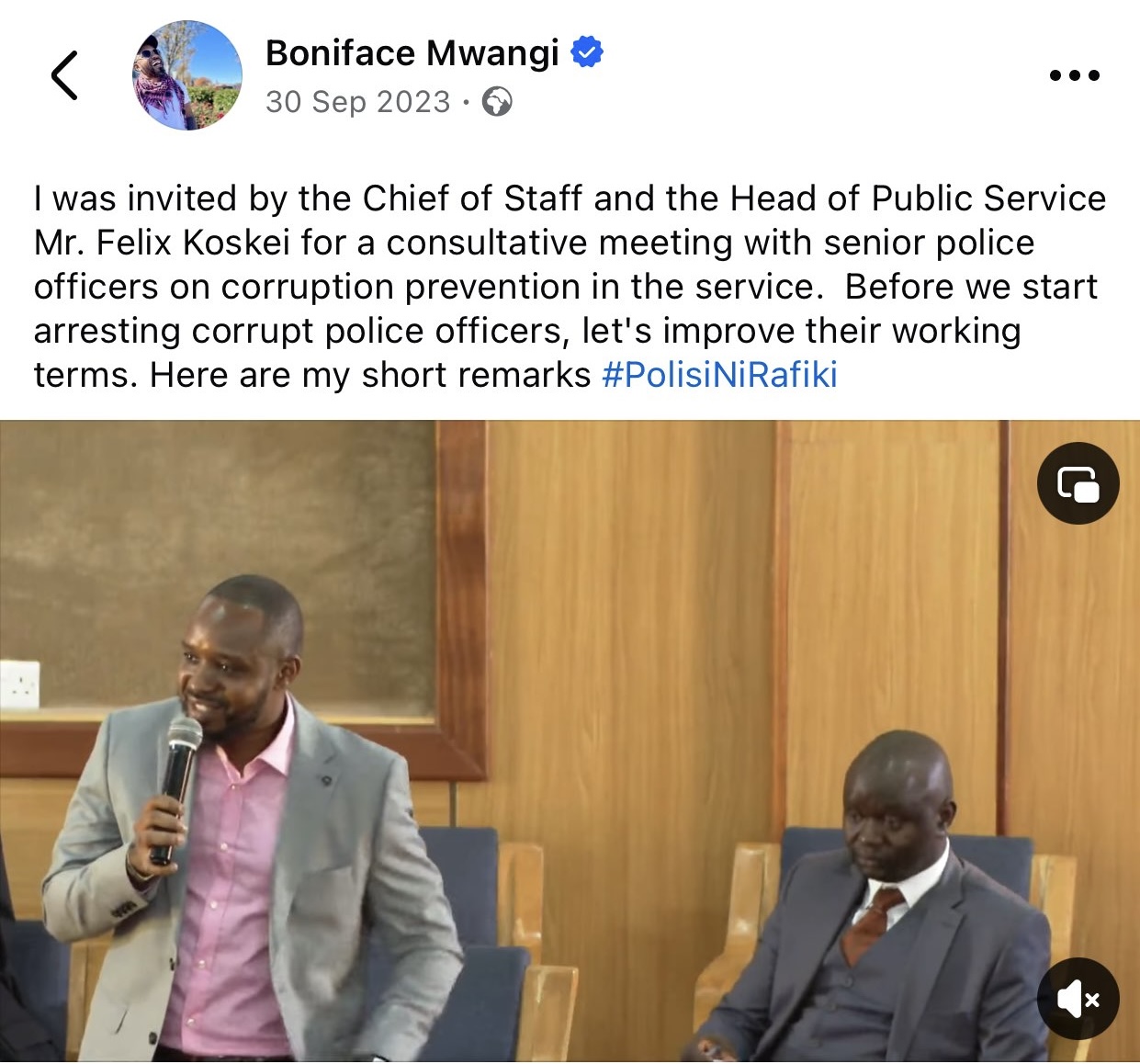
POLISI NI MARAFIKI: Words of commercial activist Boniface Mwangi who is on the payroll of the Ministry of Interior to project Alcoblow as a moral necessity
The authorities first targeted Standard Media Group, prompting questions about the delay in revealing how three DCI officers visited their headquarters and intimidated the CEO.
Subsequently, these same officers approached Safaricom, where a police officer based at the telco’s headquarters traced Albert Ojwang’s residence in Homa Bay. Despite repeated warnings to young people to avoid using Safaricom, these cautions have been largely disregarded, though the personal and severe consequences of ignoring them are now evident.
Gilbert Masengeli delivered the fatal blow that extinguished the young life of blogger Albert Ojwang, his formidable stature and powerful fist proving too overwhelming for the young man’s slight frame to endure.
On Friday, June 6, 2025, both Gilbert Masengeli and Eliud Langat attended the birthday celebration of High Court Judge Dorah Chepkwony at the Aero Club within Wilson Airport. A brief investigation reveals that Justice Chepkwony is associated with questionable rulings, accompanied by allegations of bribery during her tenure. However, we will address that matter in greater detail in a future discussion.
This inappropriate and unethical closeness between law enforcement and judicial officials underscores why Kenya is widely regarded as a failed state.
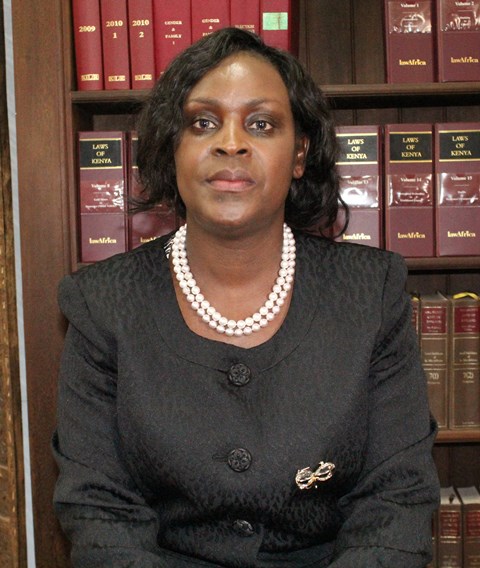
BIRTHDAY GIRL: High Court Judge Justice Dorah Chepkwony invited Eliud Langat and Gilbert Masengeli for her birthday at Aero Club
The two police deputies arrived casually at 10:00 PM and showed little interest in mingling with the other guests, instead pacing restlessly and engaging in private conversation, appearing deep in thought.
The following day, Saturday, June 7, 2025, Albert Ojwang was apprehended at his family home in Mawegu, Homa Bay, while having lunch with his father. They initially recorded a statement at the local police station before being driven at high speed to Nairobi.
Sergeant Sigei, who had previously served as the driver during the arrest of Francis Gaitho outside Milimani Court, was assigned as their driver. Upon their evening arrival, Ojwang was booked at Central Police Station but was subsequently “released” and taken to Eliud Langat’s residence, where the process of interrogating him began.
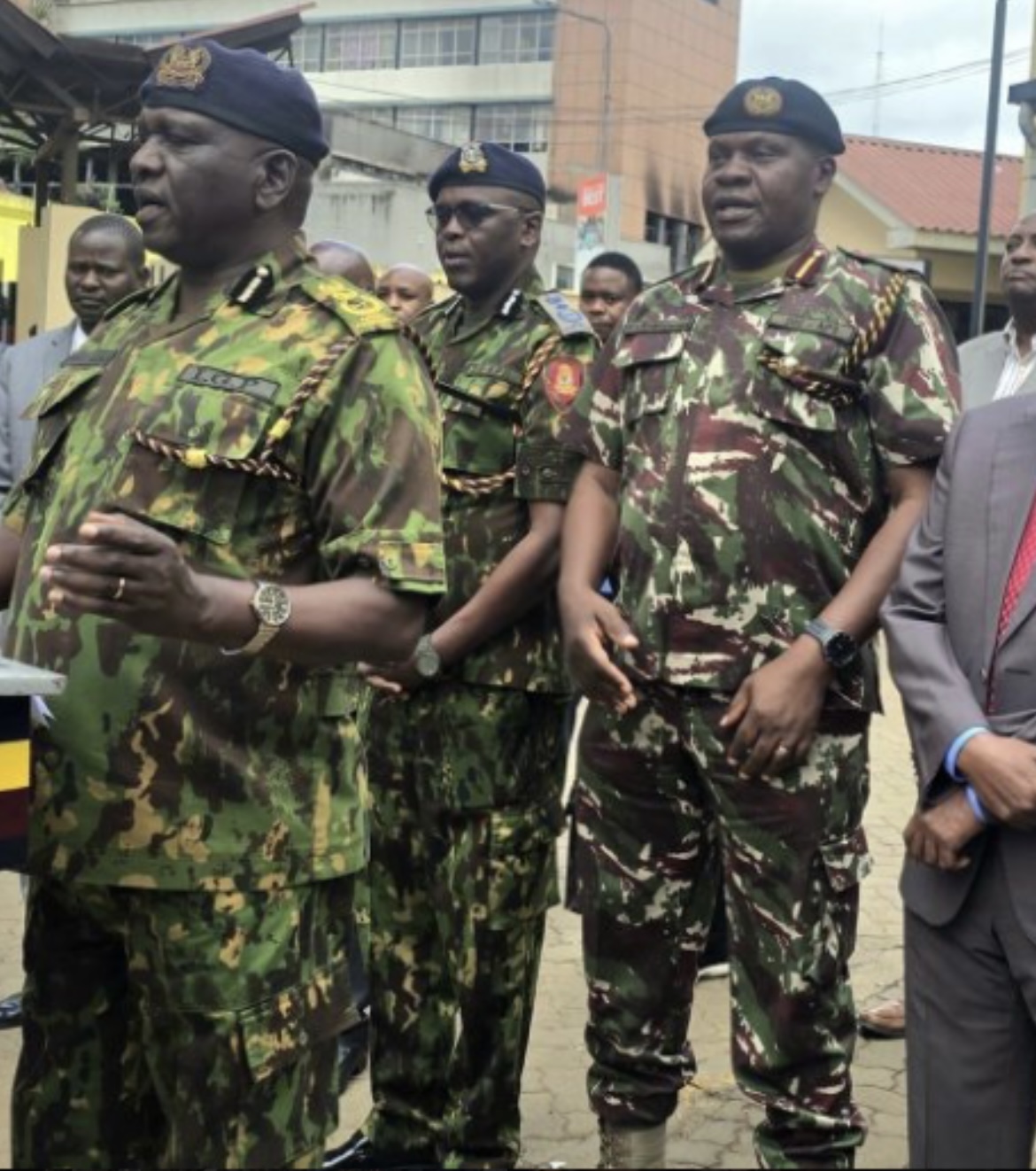
The towering Gilbert Masengeli delivered the fatal blows which ended Albert Ojwang’s life
He was collected by Eliud Langat’s driver, Keter, a long-time associate from Langat’s days as the OC-Bomb at the DCI, prior to his promotion to Vigilance House. DCI officers from the Special Crimes unit, which is headed by Michael Sang, proceeded to erase Ojwang’s social media accounts and remove all traces of his tweets concerning Eliud Langat.
In an effort to extract information about his funding sources, Ojwang was reluctant to disclose details, prompting the onset of beatings and torture. Masengeli took the lead, delivering brutal punches that ultimately proved fatal. By the time Keter was driving the unconscious Ojwang back to Central Police Station, he had already succumbed to his injuries.
Albert Ojwang’s father was misled by the DCI officers’ persuasive tactics into handing over his son – a strategy that failed when attempted with you’re truly Francis Gaitho. Last October, when DCI officers raided my home, one speaking in Kikuyu promised fair treatment if I refrained from tweeting, asking only for a statement before allowing me to return home.
Distrustful of the corrupt police, I quickly locked the door, tweeted for assistance, and alerted my network to raise the alarm.
Remarkably, Albert Ojwang’s family and friends were convinced to suspend their judgment, placing their trust in the police and appearing unperturbed during his phone calls. Another critical error was Albert Ojwang’s decision to provide his login credentials to the DCI officers, who debriefed him and erased his social media accounts. These accounts are now being restored following public outcry, likely as a belated attempt to mitigate backlash.
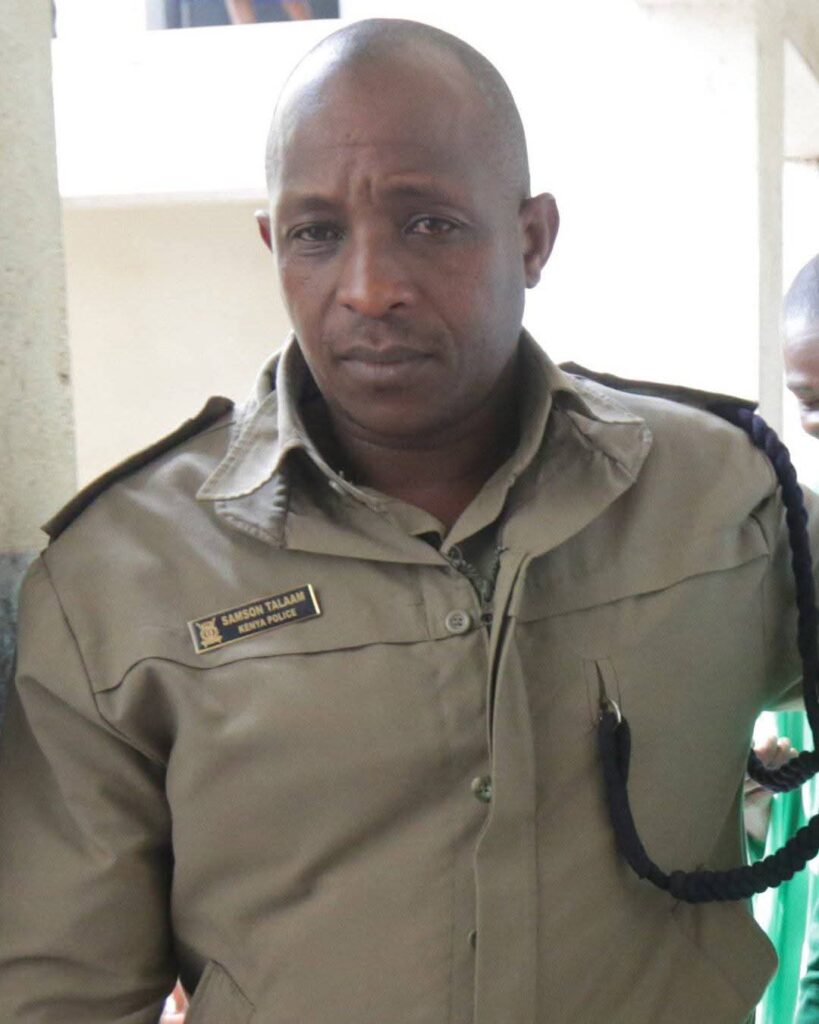
Suspended Central Police Station OCS Samson Taalam who disabled the CCTV
A DCI officer named Abdirahman attempted to coerce me into surrendering access to my devices’ logins, but I firmly refused.
The fundamental weakness in this case lies in how Albert Ojwang and his loved ones were swayed by the empty promises of those whose true intent was to eliminate him.
My own experience, nearly identical to Albert Ojwang’s except for my survival, is detailed in an IPOA complaint filed earlier this year, reflecting the same patterns he endured. Because I had tweeted and notified my network, the officers hesitated to kill me, though they warned that continued criticism of William Ruto would result in my death.
Albert Ojwang’s demise was a premeditated and carefully orchestrated act, attributable to William Ruto alone, who possesses the authority to convince an Officer Commanding Station (OCS) to release a detainee after hours, despite their entry in the digital Occurrence Book (OB).
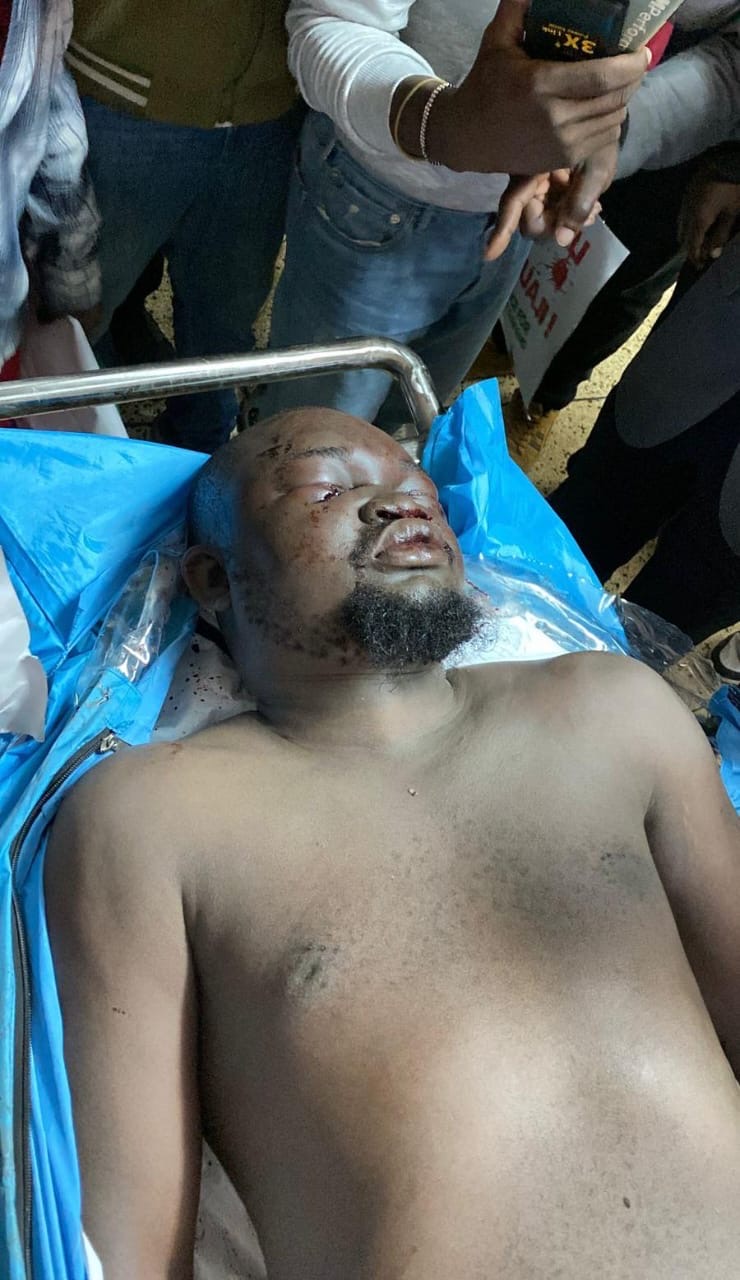
Blogger Albert Ojwang’s lifeless body lays at City Mortuary – another casualty of William Ruto’s crackdown on dissent
For those unfamiliar, the OB’s digital format requires substantial influence to assure the OCS that his position remains secure despite such irregularities. Under the law, the OCS holds significant autonomy, and not even the Inspector General can overrule decisions regarding suspects in his custody.
Kenyans have intensified their demands for the immediate resignation of William Ruto following the horrific murder of Albert Ojwang, warning that failure to comply will result in the occupation of State House and its potential destruction.
Much like last year, when William Ruto misled Generation Z with a carefully crafted speech promising responsiveness to their concerns, Albert Ojwang’s family and friends were similarly deceived into suspending their judgment, naively trusting that the police officers responsible for his death would return him alive.
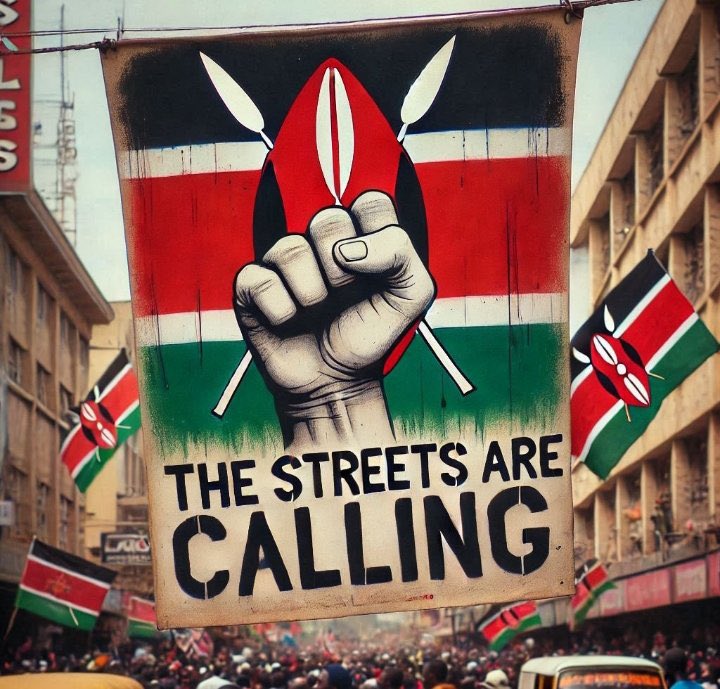
KUFINISH KUMALO: Kenyans have resorted to deal with the problem from its root-cause
Gen Z were persuaded to abandon their planned occupation of State House by compromised influencers such as Boniface Mwangi, Hanifa Adan, Khalif Kairo, and Gidi Kariuki, who urged them to believe in William Ruto’s supposed transformation and to grant him time for reform.
Between June 2024 and February 2025, the Auditor General reported that William Ruto misappropriated 1.3 trillion shillings, while dozens of individuals were killed through abductions and extrajudicial executions. The very dangers Kenyans sought to escape by believing his hollow rhetoric last year have now resurfaced with greater ferocity and peril.

Between June 2024 and February 2025, William Ruto had looted Kshs. 1.3T, a catastrophe that could’ve been averted if the Gen Z revolution was successful
The only viable course of action is to disregard the distractions and interference from infiltrators, focusing solely on the critical objective of occupying State House – nothing more, nothing less.
The movement must now prepare for a prolonged and determined campaign to demand Ruto’s resignation. There can be no retreat to the fleeting comfort of home while facing perpetual dangers.
The sacrifice is essential; otherwise, a life of unrelenting anxiety, orchestrated headlines, and emotional manipulation by propagandists such as Mutahi Ngunyi, David Ndii, and Makau Mutua will become the norm.

